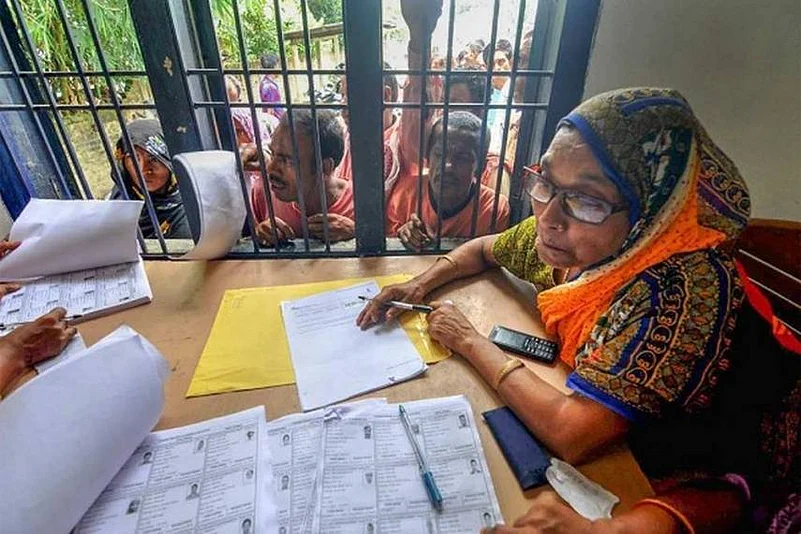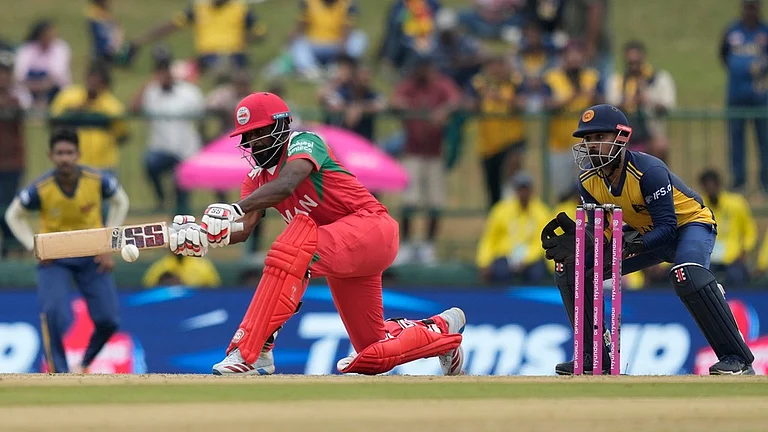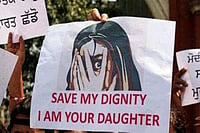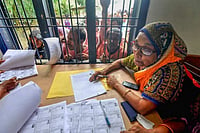The Gauhati High Court recently dismissed citizenship claims of two petitioners-- one of whom produced as many as 15 documents while another submitted his electoral photo identity card.
In an order dated February 12, a bench of Justices Manojit Bhuyan and Parthivjyoti Saikia dismissed a writ petition filed by one Jabeda Begum. She was declared a foreigner from Bangladesh by a Foreigners Tribunal in Baksa district in May 2019 despite her claim that she was a citizen of India by birth.
Those identified as suspected illegal immigrants who have come to Assam after March 24, 1971, the cut-off date as per the Citizenship Act, have to prove their citizenship in the Foreigners Tribunals.
Begum, who claimed that her family is a victim of river erosion and had to shift villages, produced documents where she sought to show that her father was in the NRC list of 1951. She showed that the names of her parents and grandparents appeared in the voter list of 1966; the names of her parents and siblings were also present in several subsequent voter lists.
Moreover, she produced documents like land revenue payment receipts, her bank passbook, her PAN card, and a ration card.
Begum also had two certificates by the Gaon Bura (village head) of the village. The first certificate said her father Jabed Ali was a permanent resident of the village while the second one said Begum was Jabed Ali’s daughter and married to Rejak Ali.
“In the instant case, the petitioner claimed that she is the daughter of Lt. Jabed Ali and Jahura Khatun @ JaheraKharan. She could not file any documents to link herself with her projected parents… “ the HC order said dismissing her petition.
“This Court in Md. Babul Islam Vs. Union of India [WP(C)/3547/2016], has already held that PAN Card and Bank documents are not proof of citizenship,” the order said citing a previous ruling.
“The petitioner could not file any documents to link herself with her projected brother, Md. Samsul Ali,” the order reads. It further says, “Land Revenue Paying Receipts do not prove a citizenship of a person. Therefore, we find that the Tribunal has correctly appreciated the evidence placed before it and we could find any perversity in the decision of the Tribunal.”
Interestingly, the order also did not take into account the Gaon Bura's certificates.
“Certificates issued by a Village Gaon Bura can never be the proof of citizenship of a person. Such certificate can only be used by a married woman to prove that after her marriage, she had shifted to her matrimonial village [Rupjan Begum Vs. Union of India, reported in (2018) 1 SCC 579],” the order read.
The Supreme Court had allowed married women to submit Gaon Bura certificates as documents to establish their relationship to their parents for inclusion in National Register of Citizens but said they should be verified.
“Merely producing a document is not enough. The content of the document has to be verified and the author of the said document has to come to the witness box,” said SC Kayal, assistant Solicitor General of India explaining how Begum had failed to prove the veracity of her documents.
Meanwhile, in another order on the same day, the bench dismissed a petition by Munindra Biswas, who claimed that he has been wrongly declared a foreigner last year by a Tribunal in Tinsukia. Biswas claimed his father migrated to the Ledo town in 1965 from Nadia in West Bengal.
To support his claim, Biswas submitted a registered sale deed, another sale deed and a copy of the voter list of 1997 which had his name. He also submitted his Electoral Photo Identity Card (EPIC).
“Regarding Electoral Photo Identity Card this court in the case of Md. Babul Islam Vs. State of Assam [WP(C) No. 3547 of 2016] has held that Electoral Photo Identity Card is not a proof of citizenship,” the order read.
Faizan Mustafa, a well-known jurist and constitutional expert says these orders show that people have documents but they are not accepted, due to which genuine citizens are getting excluded."
“The language of ‘projected brother’ and ‘projected parents’ is alien to the civilised legal system,” Mustafa said referring to the order in Begum’s case.
He said the two orders dismissing the petitions “ignore the law of evidence under which even oral evidence is considered sufficient.”
“Why did the court did not accept the brother’s evidence,” he asked referring to Begum’s case, and added, “The court has taken a highly technical view."


























